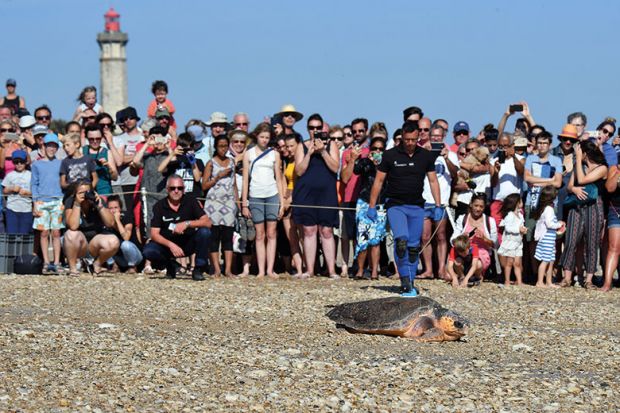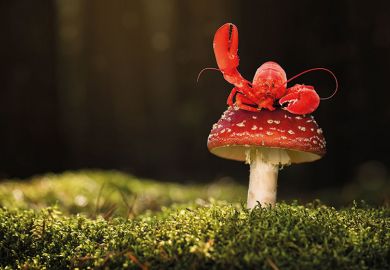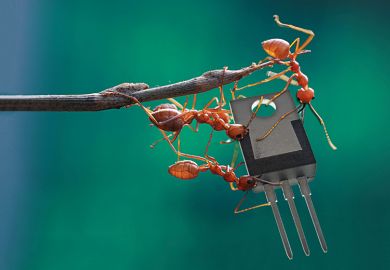Christine Korsgaard achieves in a small volume – dedicated to five cats with whom she has lived – a virtuosity of presentation that combines readable sentences, accessible arguments and a deep care for non-human animals. Straightforward and well-crafted, the book addresses the question of who comprises humans’ larger community. Korsgaard’s focus is the mainstream Western philosophical tradition anchored in Greek precedents, which results in Aristotle and Kant receiving the lion’s share of attention. (She has long been a respected voice on the work of Kant, the most important modern philosopher.) Peter Singer, whose classic Animal Liberation (1975) opened up modern philosophical and policy debate, is also given significant attention, as are the views of John Stuart Mill, because these modern thinkers asked whether humans’ interests should overshadow the interests of any and all non-human animals.
Readers whose concerns extend beyond Western culture might at first wonder if Korsgaard’s focus is too restricting. Such narrowness is, however, common in contemporary books about “animals”. In fact, few of the rapidly increasing number of discussions on this theme deal with more than one of the many human traditions reflecting on our inevitable intersection with other living beings. Other readers may notice as well how rarely Korsgaard refers to the startlingly rich findings of contemporary science regarding many non-human animals’ abilities in cognition, intelligence and communication skills.
Despite these gaps, what makes this volume so substantial is that Korsgaard’s writing lives up to George Orwell’s ideal: “good prose is like a windowpane”. Such clarity is hinted at in her choice to step away from the non-scientific dualism of “humans and animals” in favour of language that underscores our obvious membership in the animal community. Hence the “fellow creatures” and “obligations to other animals” in the title. The result is a lucidity that is at once readable and philosophical. Furthermore, by focusing on Kant’s influential views on non-human animals, Korsgaard offers another lesson – she models for the reader how to explore important but less obvious features of someone’s thinking. Kant needs such help, for on the animal question he notoriously said in a series of late-18th-century lectures on ethics that humans owe no direct duties to non-human animals. This comment is often offered as proof that the Western philosophical tradition is heartless in relation to them. Yet Korsgaard’s mining of Kant’s work suggests an alternative possibility: one can often find in the interstices of a key thinker’s work, or in that thinker’s daily life, an awareness and appreciation of our non-human neighbours not immediately evident in published works. This matters, because Kant’s thought has been claimed to support a dominant narrative of our times, namely that no moral problems exist when humans harm non-humans.
Korsgaard’s achievement is to have animalised Kant in the positive sense of revealing that Kant reflected on human life in ways that are congenial to the obvious fact that we live in a more-than-human world. Through her strategy of “look[ing] between the lines”, she is able to explore if a thinker noticed what many people today do: that humans can, if we choose, give regard to other animals and take them seriously as members of our larger community.
Paul Waldau is professor of animal behaviour, ecology and conservation at Canisius College, Buffalo, NY and the author of Animal Studies: An Introduction (2013).
Fellow Creatures: Our Obligations to the Other Animals
By Christine M. Korsgaard
Oxford University Press
272pp, £19.99
ISBN 9780198753858
Published 5 July 2018
Register to continue
Why register?
- Registration is free and only takes a moment
- Once registered, you can read 3 articles a month
- Sign up for our newsletter
Subscribe
Or subscribe for unlimited access to:
- Unlimited access to news, views, insights & reviews
- Digital editions
- Digital access to THE’s university and college rankings analysis
Already registered or a current subscriber?




